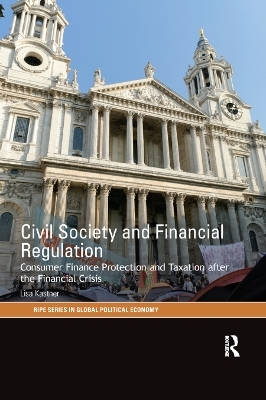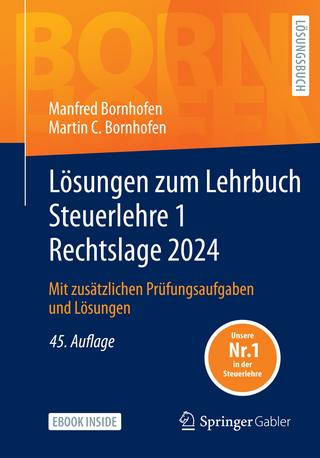
Civil Society and Financial Regulation
Routledge (Verlag)
978-0-367-88720-9 (ISBN)
- Titel z.Zt. nicht lieferbar
- Versandkostenfrei
- Auch auf Rechnung
- Artikel merken
Coalitions of consumer groups, NGOs, and trade unions have traditionally been considered politically weak compared to well-organized and resourceful financial sector groups which dominate or "capture" financial regulatory decisions. However, following the 2008 financial crisis, civil society groups have been seen to exert much more influence, with politicians successfully implementing financial reform in spite of industry opposition.
Drawing on literature from social movement research and regulatory politics, this book shows how diffuse interests were represented in financial regulatory overhauls in both the United States (US) and the European Union (EU). Four cases of reform in the post-crisis regulatory context are analyzed: the creation of a new Consumer Financial Protection Bureau in the US; the introduction of new consumer protection regulations through EU directives; the failure of attempts to introduce a financial transaction tax in the US; and the agreement of 11 EU member states to introduce such a tax. It shows how building coalitions with important elite allies outside and inside government helped traditionally weak interest groups transcend a lack of material resources to influence and shape regulatory policy.
By engaging with a less well-known side of the debate, it explains how business power was curbed and diverse interests translated into financial regulatory policy.
Lisa Kastner is a policy advisor at the Foundation for European Progressive Studies in Brussels and associated research fellow at Sciences Po Paris. Her research on the politics of financial markets in the US and the EU was awarded the Research Award by the Erasmus academic network on Parliamentary Democracy in Europe (PADEMIA) and the Otto Hahn Medal of the Max Planck Society.
1. Introduction.PART I A THEORY OF FINANCIAL REGULATORY CHANGE. 2. Towards a Causal Mechanism of Post-Crisis Regulatory Reform Dynamics. PART II THE CASES. 3. Winner-Take-All Politics and Civil Society Groups: The US Consumer Regulator. 4. Policy Compromise and Civil Society Groups in Financial Regulation: EU Consumer Finance Reforms. 5. Civil Society and the Limits of Lobbying: Case Study of the Financial Transaction Tax (FTT) in the US. 6. Civil Society and the Limits of Capture: Case Study of the EU FTT. 7. Conclusions.
| Erscheinungsdatum | 16.12.2019 |
|---|---|
| Reihe/Serie | RIPE Series in Global Political Economy |
| Verlagsort | London |
| Sprache | englisch |
| Maße | 156 x 234 mm |
| Gewicht | 400 g |
| Themenwelt | Sozialwissenschaften ► Politik / Verwaltung |
| Wirtschaft ► Betriebswirtschaft / Management ► Finanzierung | |
| Wirtschaft ► Volkswirtschaftslehre ► Wirtschaftspolitik | |
| ISBN-10 | 0-367-88720-7 / 0367887207 |
| ISBN-13 | 978-0-367-88720-9 / 9780367887209 |
| Zustand | Neuware |
| Haben Sie eine Frage zum Produkt? |
aus dem Bereich


